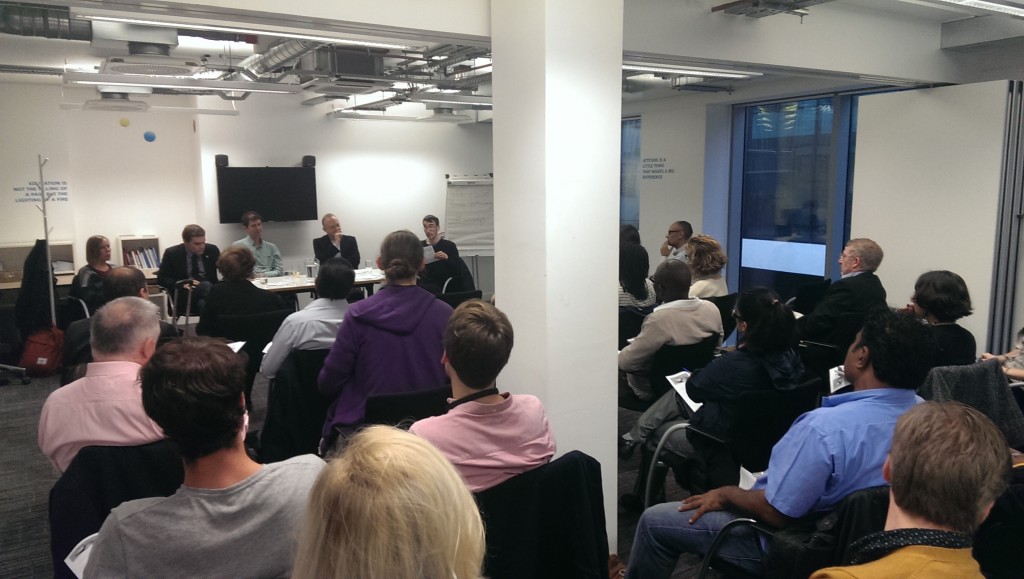by Nikki Wilson
Last night saw the second of the School for Social Entrepreneurs “Question Time” events hosted by David Floyd of “Social Spider”. The event was supported by a panel with a range of experience and perspectives on social enterprise: Nick Temple, Director of Business at Social Enterprise UK, Professor Fergus Lyon, Professor of Enterprise and Organisations at the Third Sector Research Centre, Neil Fenton. Director of Finance at London Early Years Foundation, and Miia Chambers who has worked in a variety of social enterprise environments, with related posts at P3, Camden Council and Participle.
Questions raised before the event and from the floor on the night created discussion around a range of topics. Perhaps inevitably, finance took quite a dominant role, with access to finance often being cited as a barrier to growth. Issues discussed included whether increasing levels of financial expertise were needed if an organisation is to scale, whether social enterprises need to be more open to equity investment to source the finance they need and why the social finance market tends to be dominated by a relatively small number of large institutional investors, although the extent to which this is the case and the fact that it is changing was another issue raised.
However, members of the panel were keen also to shift the debate away from finance to the wider issues around what scaling means – is it necessarily about internal growth and increased income generation or can scale be achieved in other ways? The range of examples given that an organisation can fulfil its mission without growing significantly itself demonstrated that the latter is certainly the case – from selling intellectual property to other organisations and training others to replicate activities, to advocating and influencing government to create new “norms” in terms of delivery and commissioning, and leading by example to influence the practice of commercial competitors as has been the case with “Divine Chocolate”.
Something that I found particularly interesting relating to this topic was the huge scope to create impact through the “value chain”– an area that seems largely untapped at the moment, yet is perhaps one of the key ways in which social enterprises can create and benefit from international reach. Coincidentally, later in the evening I read about one such example Colalife who interestingly did not set out with this mindset but benefited from mimicking the practices of Coca Cola. This is also an example of how a social enterprise can adapt as new learning comes to light but the change of direction was sadly not well received by the press – this issue is also explored within the blog.
One question that particularly challenged the panel was around who is most likely to provide bad advice around scaling! It was clear that choosing who to avoid isn’t easy to define but that automatically assuming that someone who has experienced failure would be a bad source of advice is perhaps misguided. If they have had a chance to reflect on their experiences they may be amongst the best placed to suggest ways in which they could have done things differently and some of the pitfalls to avoid. Above all, the consensus seemed to be to try to seek a range of advice from people who are objective and as impartial as possible.
This post is by Nikki Wilson, SSE’s Financial Controller. You can follow her on Twitter @NiksClicks



Pingback: Spreading the word | Open Ears, Bright Ideas
Pingback: Succeeding by Cessation | Open Ears, Bright Ideas
Pingback: Another defined mess | Beanbags and Bullsh!t